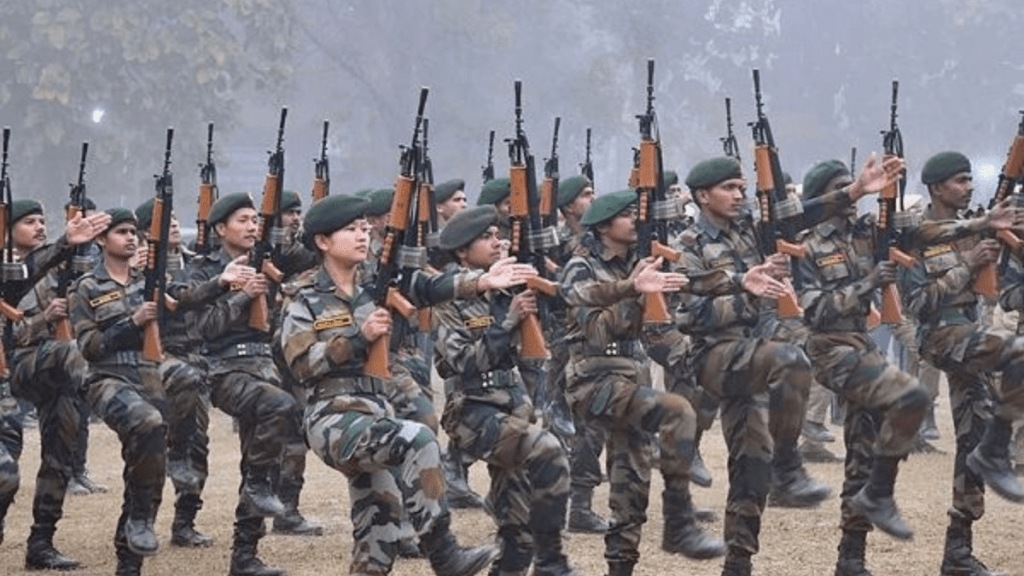By Maj Gen Ashok Kumar (Retd)
Agnipath scheme was announced on 14 Jun 22 with multiple aims focussed on the national good. The discussions followed since then brought out multiple narratives based on individual understanding of the security issues besides their understanding as to how they see the country’s defence forces -an employment churner or a professional outfit. The debates are continuing. These gained fresh traction in the run up to the parliamentary elections. It did not die down and the Parliament was witnessing heated debates on this and related issues.
Somewhere along the line, an important narrative got obscured. And this not so prominent narration relates to the announcement date of Agnipath on 14 Jun 22. It is known to all of us that China had transgressed at multiple locations along Line of Actual Control (LAC) in the Eastern Ladakh (EL) area changing the situation as it existed on Apr-May 20. It was natural on part of India to prepare proactively for any future conflict, if it escalates to that stage. Younger soldiers are most suited for the conduct of operations especially in the terrain as obtained on our borders with China.
While India was working on the Tour of Duty concept to look at this issue, this change would have resulted in suboptimal results as the Indian defence forces needed a more realistic youthful profile in adequate Nos.
In addition to this major trigger by China, who did not restore the station quo ante as existing in Apr-May-20 despite multiple rounds of political, diplomatic and military level talks, the emerging situation necessitated the changes needed to reduce the average age profile of the units. This reform could not be kept pending for long. Another trigger came due to the Russia-Ukraine war wherein Russia launched special operations on Feb 22 against Ukraine. The whole world imagined that Ukraine would collapse in no time against mighty Russia but it did not happen. Ukraine withstood and is continuing to fight even now after two and half years. Despite being a conflict between two uneven adversaries, Ukraine is continuing the conflict but what happened to Russia? It needed more soldiers on the battlefield and therefore ‘reserves’ were activated besides large-scale new recruitments. It was clearly apparent that long drawn battles need to be fought even if you have the nuclear weapons and your adversary is unmatched.
India realised this operational necessity thrown by the Russia-Ukraine conflict at an early stage. This was important for India as ‘reserves’ in case of India are formed from those who are within two years of their superannuation and thus part of ‘reservist list’. One can now deduce the conclusion as to what utility these reservists will add to the battlefield potential at these ages if they have to move to a battlefield area in high altitudes. Besides, the reservists and their employment has probably not been rehearsed at any stage in India. Both these aspects combined indicate that the country needed a different pragmatic option to create the surge capacity in case of any future probable war. It is due to such an operational necessity that Agnipath appears to have been announced on 14 June 22 having realised it’s inescapability after analyzing Chinese transgressions and Russia-Ukraine conflict.
Not only this, there have been continuous trends the world over to reduce the strength of standing Army including our primary adversary, China. This is due to the fact that technological advancements, lethality and long-range vectors have provided more effective options with lesser manpower. India also needed to adopt this change and therefore has planned to retain only top performing 25 percent Agniveers whereas balance 75 percent are making the units younger and more agile besides providing a large pool of reservists who are capable of fighting in high altitude areas should a situation demand such surge capability. The younger age is the best option to fight in the High-Altitude areas.
There is a need to give due credit to the serving fraternity and other decision makers. It is not realistic to assume that they will be less concerned about national security issues. While veterans are entitled to their views but they are neither being called to fight any future battles nor history will judge them adversely for the changes being brought in now. They may be only questioned for their acts or missions while they were in service. Had it not been for the understanding of nuances as were thrown out by Chinese transgressions of Apr-May 20 and Russia-Ukraine war of Feb 22, the declaration of such a trans-formative scheme would not have happened probably on 14 June 22.
The day we factor the international realities & our adversarial neighbours and focus only on the professional orientation of our defence forces, the Agnipath scheme will fall in the right place and thus the missing narrative of the international Geo-security environment will be better appreciated.
(The author is Director General, Centre for Joint Warfare Studies (CENJOWS).)
(Disclaimer: Views expressed are personal and do not reflect the official position or policy of FinancialExpress.com Reproducing this content without permission is prohibited.)

